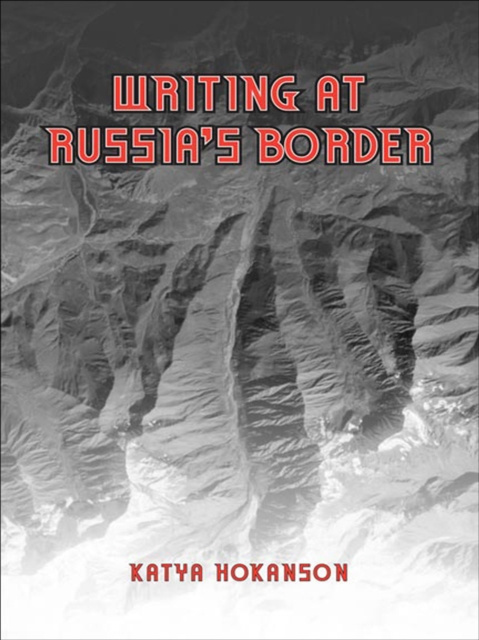
Doručení
Nákupní rádce





Nehodí se? Vůbec nevadí! U nás můžete do 30 dní vrátit
 Dárkový poukaz
V libovolné hodnotě
Dárkový poukaz
V libovolné hodnotě
S dárkovým poukazem nešlápnete vedle. Obdarovaný si za dárkový poukaz může vybrat cokoliv z naší nabídky.
Writing at Russia's Borders
 Angličtina
Angličtina
 215 b
215 b
Mohlo by vás také zajímat


It is often assumed that cultural identity is determined in a country's metropolitan centres. Given Russia's long tenure as a geographically and socially diverse empire, however, there is a certain distillation of peripheral experiences and ideas that contributes just as much to theories of national culture as do urban-centred perspectives. Writing at Russia's Border argues that Russian literature needs to be reexamined in light of the fact that many of its most important nineteenth-century texts are peripheral, not in significance but in provenance.Katya Hokanson makes the case that the fluid and ever-changing cultural and linguistic boundaries of Russia's border regions profoundly influenced the nation's literature, posing challenges to stereotypical or territorially based conceptions of Russia's imperial, military, and cultural identity. A highly canonical text such as Pushkin's Eugene Onegin (1831), which is set in European Russia, is no less dependent on the perspectives of those living at the edges of the Russian Empire than is Tolstoy's The Cossacks (1863), which is explicitly set on Russia's border and has become central to the Russian canon. Hokanson cites the influence of these and other 'peripheral' texts as proof that Russia's national identity was dependent upon the experiences of people living in the border areas of an expanding empire. Produced at a cultural moment of contrast and exchange, the literature of the periphery represented a negotiation of different views of Russian identity, an ingredient that was ultimately essential even to literature produced in the major cities.Writing at Russia's Border upends popular ideas of national cultural production and is a fascinating study of the social implications of nineteenth-century Russian literature.
Informace o knize
 Angličtina
Angličtina
Kategorie




 Jak nakupovat
Jak nakupovat






















